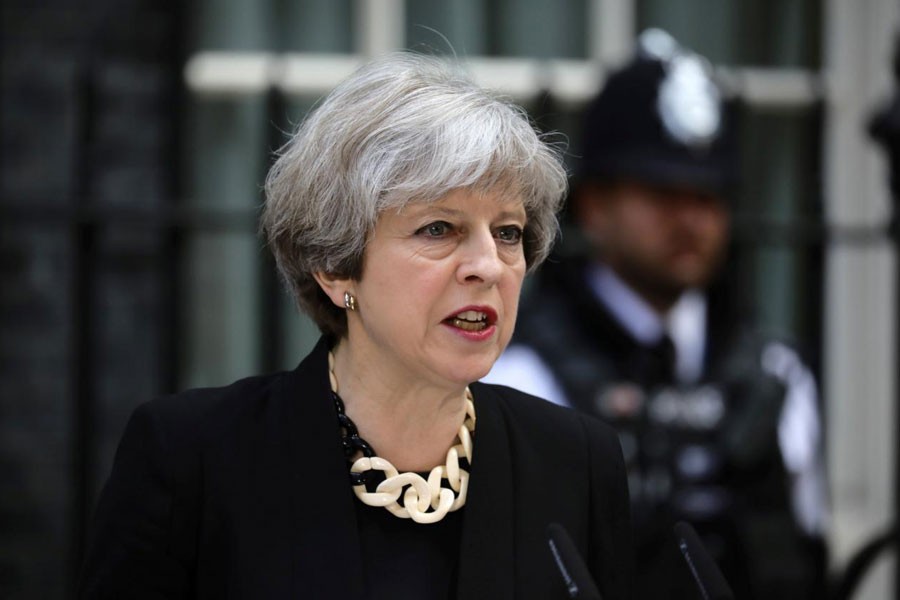EU leaders are to meet for an emergency summit in Brussels to decide whether to offer the UK another delay to Brexit.
Prime Minister Theresa May wants to postpone the date the UK leaves the EU beyond this Friday, until 30 June.
But the EU is expected to offer a longer delay, after European Council President Donald Tusk urged the other 27 leaders to back a flexible extension of up to a year - with conditions.
Mr Tusk added that "neither side should be allowed to feel humiliated".
Brexit Secretary Steve Barclay said neither he nor the PM wanted to see a longer extension, but said it was a possibility because MPs had not backed Mrs May's deal.
He said, "The reason we have to go back [to the EU] today is not because of the prime minister, but because Parliament once again refused to vote for the withdrawal agreement. It is a consequence of Parliament. Not government, Parliament."
The UK is currently due to leave the EU at 23:00 BST on Friday, 12 April, reports the BBC.
So far, UK MPs have rejected the withdrawal agreement Mrs May reached with other European leaders last year, so she is now asking for the leaving date to be extended.
Every EU member state needs to agree before a delay can be granted.
If no extension is granted, the default position would be for the UK to leave on Friday without a deal.
Mrs May will head to Belgium this afternoon, after her weekly clash with opposition leader Jeremy Corbyn at Prime Minister's Questions in the House of Commons.
That head-to-head follows five days of talks between the government and Labour officials aimed at breaking the Brexit impasse.
At the summit - which begins at about 18:00 local time (17:00 BST) on Wednesday evening - Mrs May will formally present her case for a short delay until 30 June, with the option for the UK to leave earlier if her Brexit deal is ratified.
The other EU leaders will then have dinner without her and discuss how to respond.
In a formal letter to the leaders on the eve of the summit, Mr Tusk proposed a longer, flexible extension - although "no longer than one year" - to avoid creating more cliff-edge extensions or emergency summits in the future.
Any delay should have conditions attached, he said - including that there would be no reopening of the withdrawal agreement talks. And the UK would have the option to leave earlier if a Brexit deal was ratified.
Referring to Mrs May's proposal for an extension until the end of June, he added there was "little reason to believe" that Mrs May's deal could be ratified by then.
And if the European Council did not agree on an extension at all, "there would be a risk of an accidental no-deal Brexit", he said.
Mr Tusk also warned that "neither side should be allowed to feel humiliated at any stage in this difficult process".
EU officials have prepared a draft document for the leaders to discuss at the summit - with the end date of the delay left blank for them to fill in once deliberations have ended.
On Tuesday, Mrs May travelled to Berlin for talks with German Chancellor Angela Merkel, and then to Paris to meet French President Emmanuel Macron, in a bid to seek their support for her shorter delay.
Afterwards, Ms Merkel said a delay that ran until the end of this year or the start of 2020 was a possibility.
In a statement, Downing Street said the prime minister and Chancellor Merkel agreed on the importance of ensuring Britain's orderly withdrawal.
Meanwhile, talks between Labour and the Conservatives are scheduled to resume after Mrs May returns from the summit.
The Brexit Secretary, Stephen Barclay, said holding talks with the opposition was "contrary to the normal tradition", but they were taking place "in good faith".
Labour MP Jack Dromey, who has campaigned to rule out no-deal in Parliament, criticised Mrs May for taking two years to reach out to his party, but said there was a "genuine desire" on both sides to reach an agreement.
"Those negotiations are tough, they will take time and there is a mountain to climb," he added.
"But there is a duty that falls upon all members of Parliament to reach a better deal for Britain to protect the British national interest."


